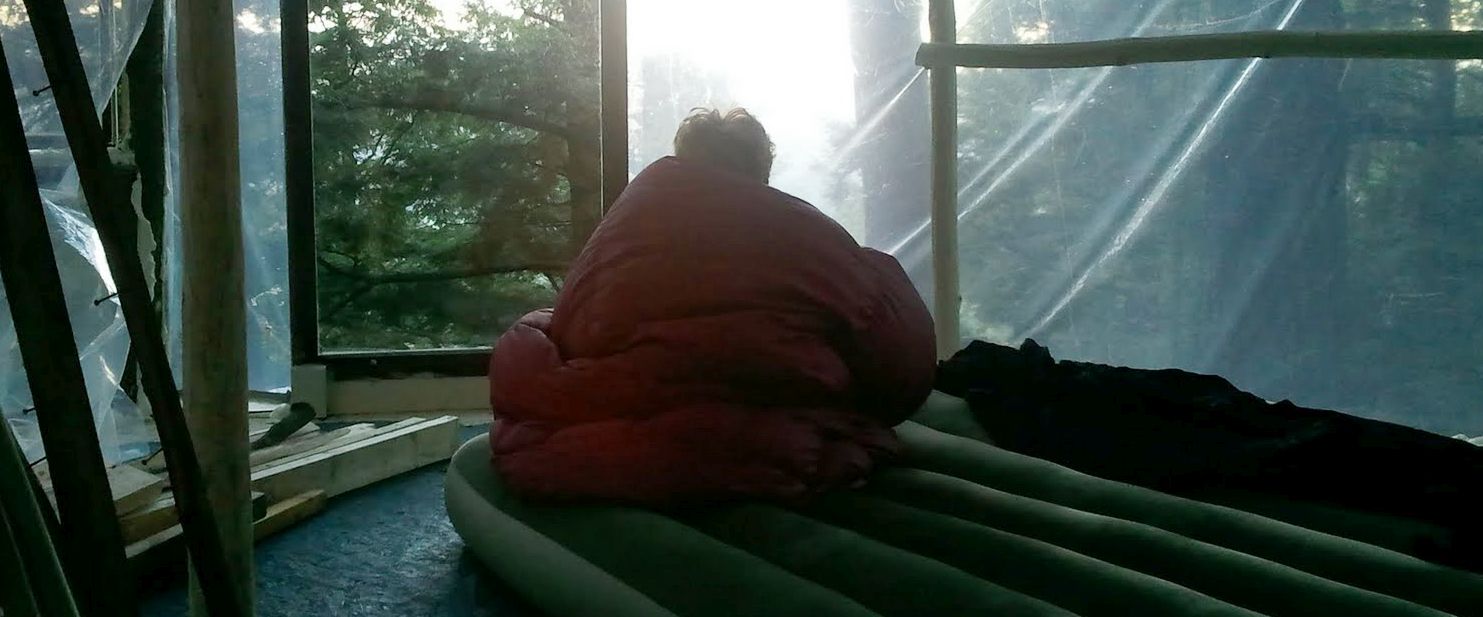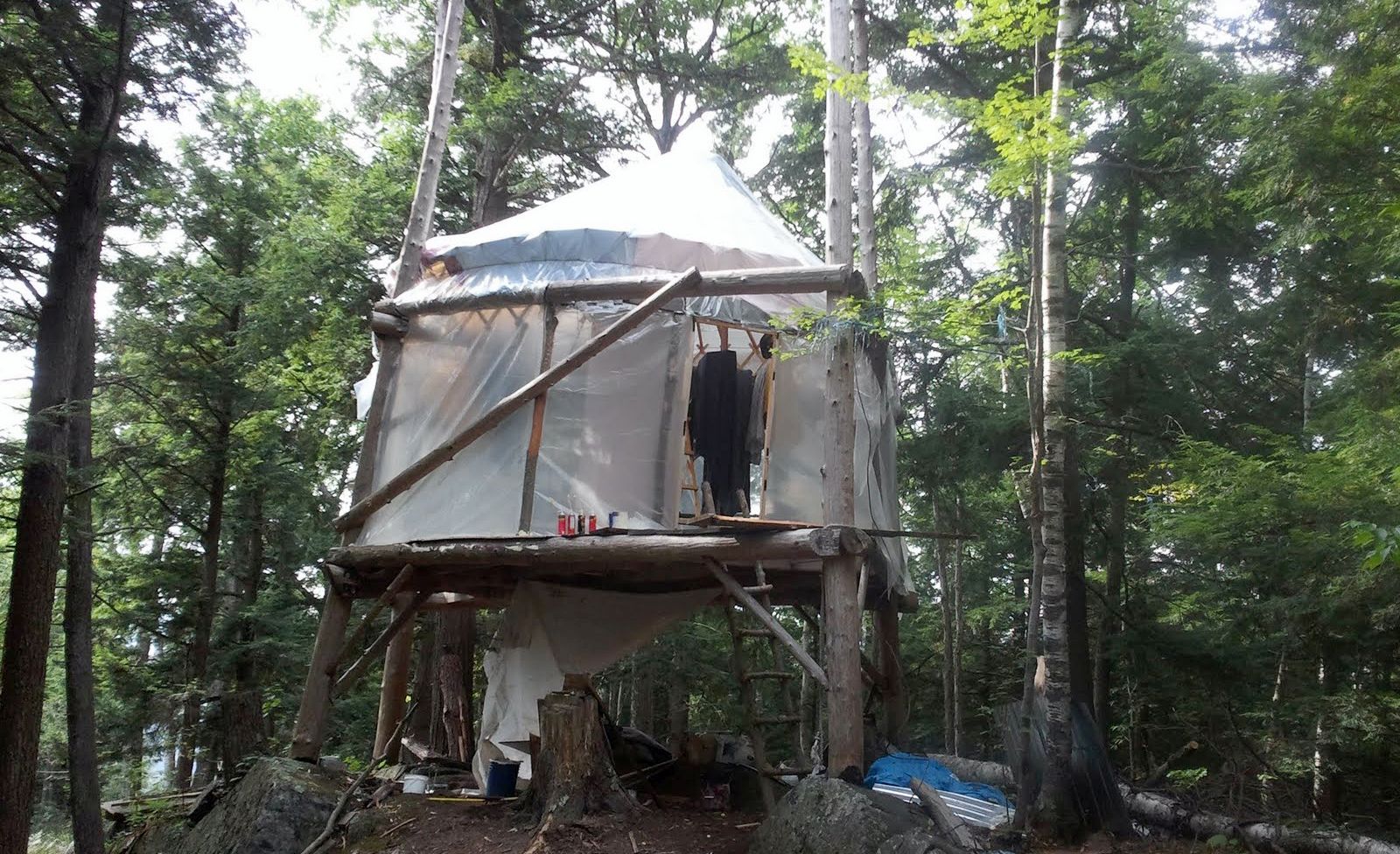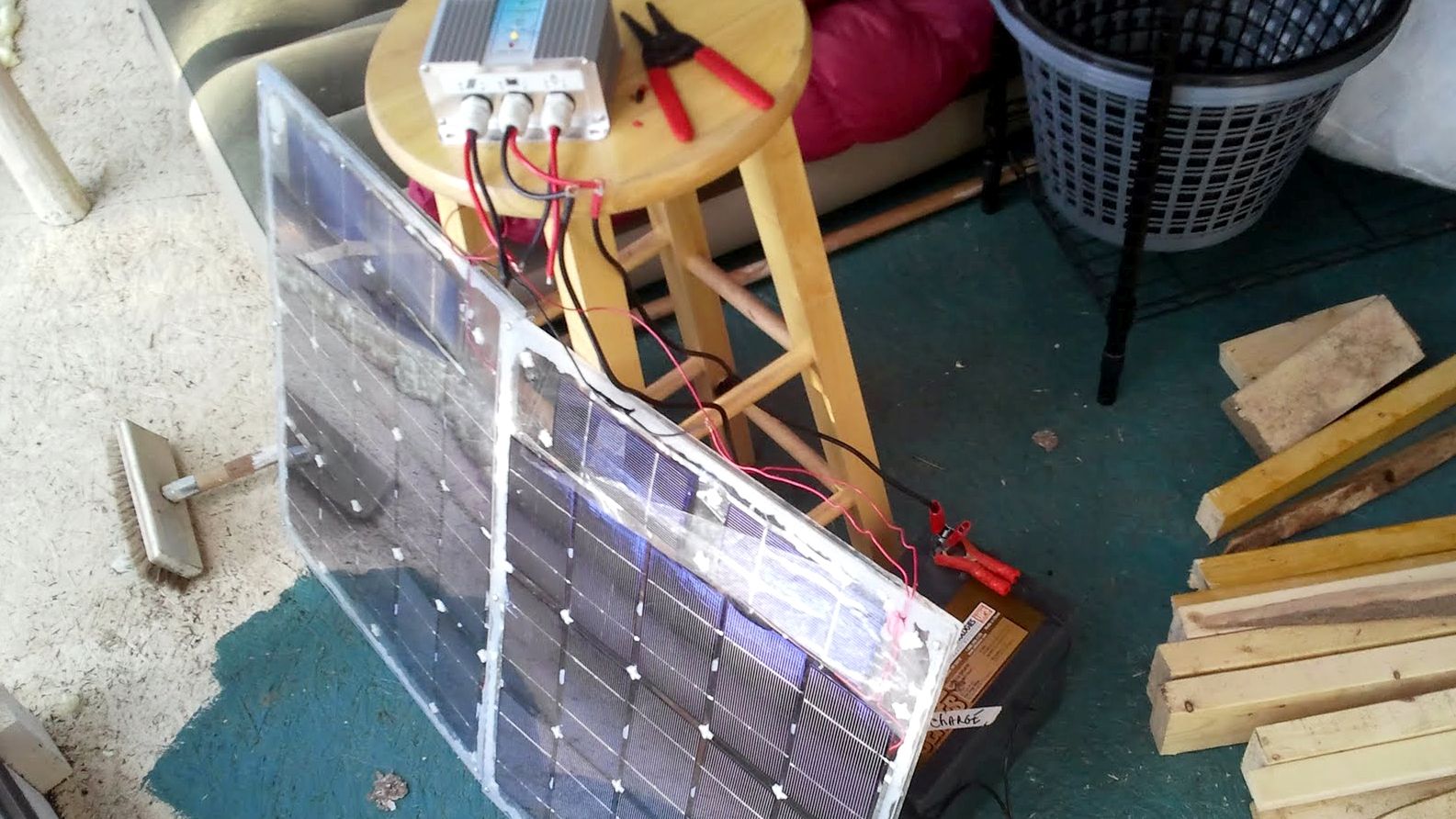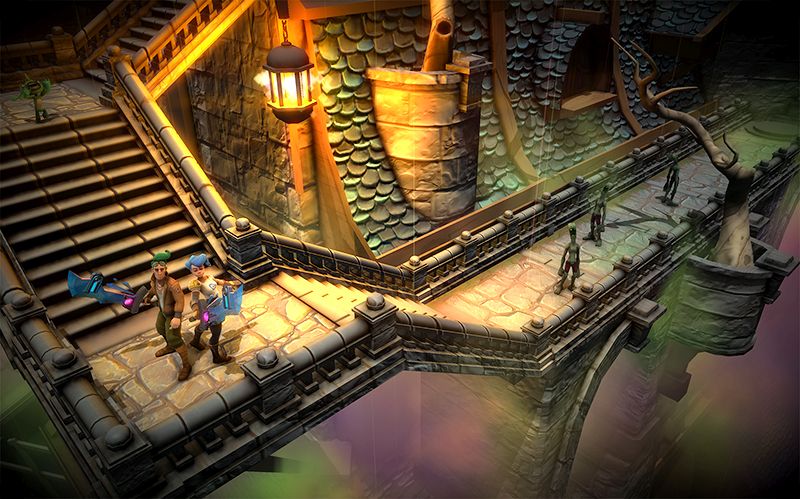
By Joe Donnelly
Sacrifice and indie development go hand in hand. Be it time, employment, regular sleep patterns or social lives, indie developers the world over recognise the need to eschew certain things in the pursuit of their dreams. For husband and wife duo Calvin Goble and Alix Stolzer, otherwise known as RobotLovesKitty, this meant selling their Manhattan apartment and moving into a treehouse in Vermont.
As two very tech-minded individuals, relinquishing the everyday domestic luxuries of the modern age was quite the contradistinction. But in 2011, a 350-squarefoot purpose-built alfresco dwelling, cradled eight feet off the ground—complete with a loft bed space, and porch decking ideal for relaxing with morning coffee—became home and office for two years. Powered by homemade solar panelling, and reliant on 4G mobile internet, it was during this time that the RobotLovesKitty duo made significant inroads into forging a career as full time videogame developers.
Beforehand, Stolzer was the partnership’s sole earner after Goble quit a decent-paying IT job to focus on making games. In 2006, he began work on Neverdaunt—an 8-bit MMO which he promised his wife would take just a year to complete.

“Calvin said one year for Neverdaunt,” explains Stolzer. “And then it was five. The original agreement was, he’d make an MMO for a year, and then I’d get a year to pursue what I was interested in—it was a trade off.” Needless to say, it didn’t turn out like that.
Stolzer may not have realised it immediately, but making games alongside (and not instead of) her husband was what she had become most interested in by that time. She eventually offered him an ultimatum: he could only continue to make games full time if she could quit her job to do the same.
By this point Neverdaunt had evolved into a beast that Goble couldn’t quite manage on his own, so with a tear in his eye he reluctantly—but impermanently—closed its servers. After contacting Jaimie Mantzel—a friend who was already set up in the sticks – about the financial appeal of greater self-reliance, Goble, Stolzer, and their two cats waved farewell to city life and journeyed into the wild.
Keep up to date with the most important stories and the best deals, as picked by the PC Gamer team.
“I think they thought we were crazy,” reflects Goble on their families’ response to moving into an area already occupied by bears.

“My mother was the only one who was excited for us,” says Stolzer. “Calvin’s mother really didn’t understand at all—she still doesn’t. But it was an experiment in extreme cheapness. I technically co-owned [our house] with a family member, so we sold our half for the amount we’d put into it—about $8,000. We had about $2,000 in savings to last us for two years, including all of the materials for the treehouse. The solar panels were much cheaper to make ourselves—we got a bunch of them, all cracked and broken, and we used salvaged windows from the streets that my father found. I think the biggest problem, however, was the surviving part. It took up about 40% of our time, so we really only had a tight timeframe to get work done.”

The games of Goble and Stolzer.
Neverdaunt
The 8-bit pet project MMO that started it all. Goble reluctantly put Neverdaunt on hiatus in 2011, saying it “had to happen because it’s going to come back much better.”
Legend of Dungeon
The permadeath roguelike that generated 660% of it’s original Kickstarter goal. To beat it you must travel to the 26th floor, fight baddies, grab treasure, and get back to the start.
Upsilon Circuit
The upcoming project sees eight players battle online in a single server. The audience control almost everything and when you die you’re out for good. Expected summer 2015.
Nonetheless, work was done. And via a combination of cellular internet and a successful Kickstarter campaign—which asked for $5,000, yet received $32,999—RobotLovesKitty’s roguelike Legend of Dungeon was born. The game was thereafter Greenlit on Steam, and its development helped along by an enthused Kickstarter backing. “We opened up content to our backers,” says Stolzer. “Some of the coolest things in the game are things that the creative minds of other passionate people came up with.”
This deference to community extends through everything RobotLovesKitty has done since. Following extended sessions watching players clamber through Legend of Dungeon, Stolzer and Goble hosted two ‘Indie Supershows’ via Twitch, where they played indie titles alongside their respective developers. The first show pulled around 40,000 viewers during a 24-hour period; the second attracted half a million over a single weekend.
Upsilon Circuit, RobotLovesKitty’s forthcoming project, takes the concept of community involvement one step further, incorporating Goble’s desire to enforce a greater appreciation of in-game permanence—meaning players get just one shot at playing. Ever. The couple were pleased with how the game was received at PAX 2014, but did concede the concept takes a bit of getting used to. “The whole thing with Upsilon Circuit is that it’s not really about the game,” explains Goble. “It’s more about watching it, about seeing and interacting with these heroes that you could get a chance to be.”
“Skill points go to the audience who selects the skill tree,” adds Stolzer. “They are the dungeon master, the strategist, and they’re kind of like a judge and jury too. If you like a person, you’ll want to help them out. If you don’t, you’ll probably be less helpful. You can actually send things into the game as an audience member to affect the game too.”
Capitalising on a generation of Let’s Players, Upsilon Circuit is an interesting prospect. The RobotLovesKitty duo may now be fulltime game developers, but it’s pretty clear things haven’t gone to their heads.
“I still get excited that I can have a real shower at times, I really do,” says Stolzer. “I turn this knob and get half an hour of hot water. It’s amazing!”
PC Gamer is the global authority on PC games—starting in 1993 with the magazine, and then in 2010 with this website you're currently reading. We have writers across the US, Canada, UK and Australia, who you can read about here.


